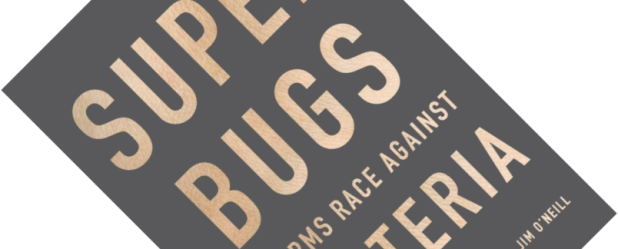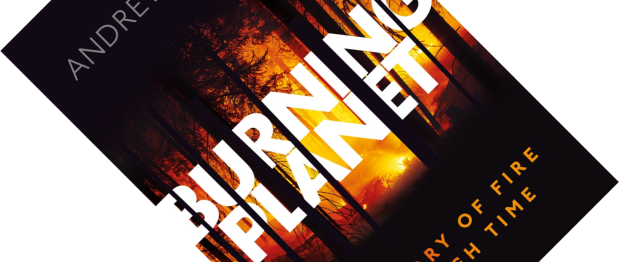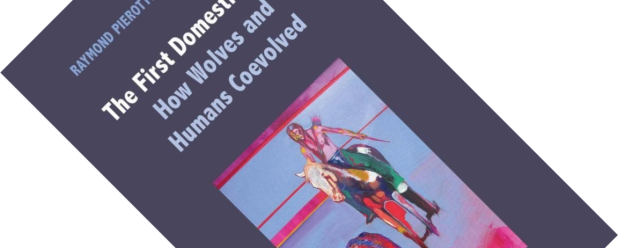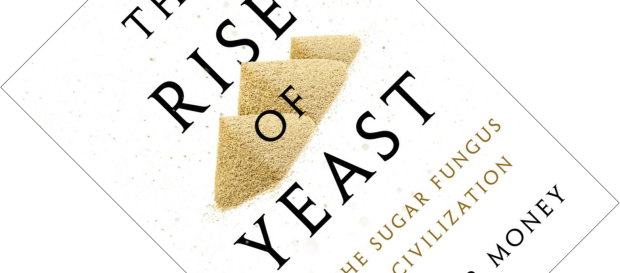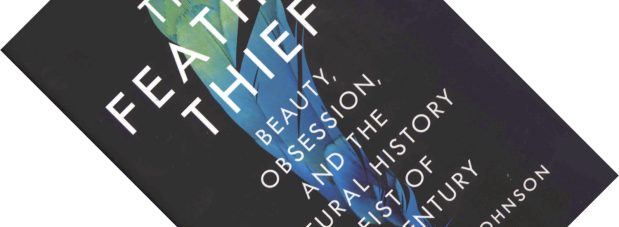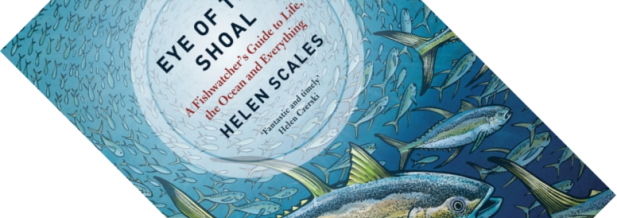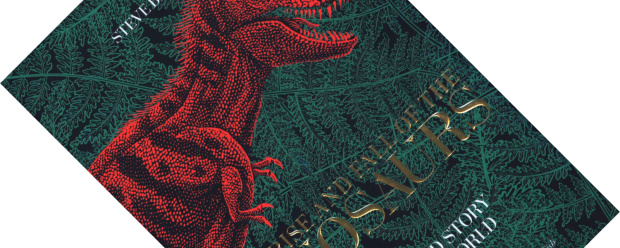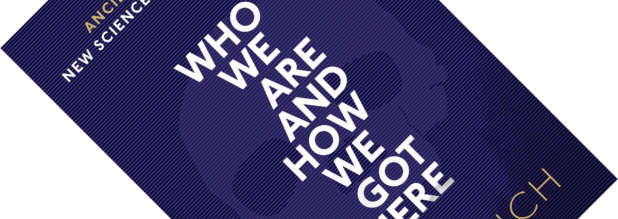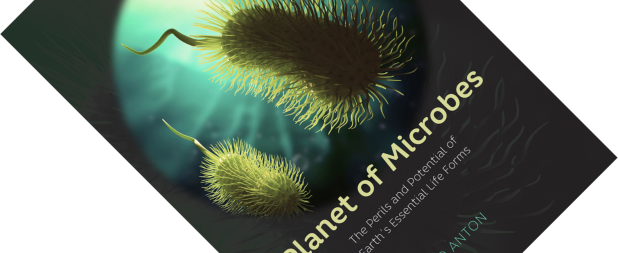Antibiotics have been saving human lives since the drug Salvarsan was discovered in 1932. Penicillin went into mass-production in 1942. This is not a long time when you think about it, but a world without the protection offered by them already seems unimaginable. Not only have they offered protection from diseases such as tuberculosis, and stopped infections following injury or childbirth, they have also allowed us to develop surgical techniques requiring immune system suppression such as organ transplants. However, careless use of antibiotics has accelerated evolution of drug-resistant bacteria such that we are about to lose their protection.
evolutionary biology
Book review – Burning Planet: The Story of Fire Through Time
Fire is a force of nature that both fascinates and frightens. Large wildfires around the world seem to be on the rise and are a cause of concern due to the risk to lives and property. But fire also is an essential part of the workings of our planet that pre-dates humans by a long time. How long? For the last 40 years, geologist and palaeobotanist Andrew C. Scott has researched plant remains in the fossil record that have been preserved by fire in the form of fossil charcoal. In Burning Planet, he takes you on a 400-million-year deep-history tour of fire and how it has shaped our planet.
Book review – The First Domestication: How Wolves and Humans Coevolved
The evolution of domestic dogs from wolves is something that has been written about a great deal. Seeing dogs are one of our oldest domesticates and very close to our hearts, there has been an intense interest in this subject. The First Domestication provides a new perspective by turning to a rich vein of knowledge that is often ignored by contemporary Western scientists: traditional stories from tribal and indigenous peoples. If the sound of that makes you roll your eyes – something I am normally much inclined to do – you would be missing out on an incredibly well-written book that deserves your full attention.
Book review – The Rise of Yeast: How the Sugar Fungus Shaped Civilisation
From the Giza-pyramid-complex-shaped mountains of dried yeast, to the visual joke on the spine (I see what you did there), The Rise of Yeast is an amusing read about fungus. In case you find that hard to believe, Nicholas P. Money, mycologist and professor of Botany, has been waxing lyrically about micro-organisms for years. Here, he highlights the humble yeast and how it has shaped human history. For without yeast there would be neither bread nor booze.
Book review – A Taste for the Beautiful: The Evolution of Attraction
Here is a strange question: does the sight of a peacock’s tail make you sick? Well, it did have this effect on Charles Darwin. The reason was perhaps more cerebral than anything else. With A Taste for the Beautiful: The Evolution of Attraction, professor in animal behaviour Michael J. Ryan gives a superbly readable and accessible account of his and other’s studies that address how sexual beauty comes about, and why we see such a bewildering diversity of traits used in mate choice.
Book review – The Feather Thief: Beauty, Obsession, and the Natural History Heist of the Century
The tropical birds-of-Paradise have fascinated generations of naturalists, from Charles Darwin and Alfred Russel Wallace (who risked life and limb to collect many specimens for museum holdings) to David Attenborough, who, together with Erroll Fuller, wrote Drawn From Paradise: The Discovery, Art and Natural History of the Birds of Paradise. They were at the centre of a Victorian fashion craze for bird feathers, which decimated many colourful bird families, but they were also at the heart of a far more obscure Victorian pastime: salmon fly-tying. A resurgence in interest led a young man to break into the ornithology collection of the Natural History Museum at Tring, stuff a suitcase with 299 specimens of various rare colourful bird species, and walk out again to sell their feathers.
Wait, what?
Welcome to the story of the natural history heist of the century.
Book review – Eye of the Shoal: A Fish-Watcher’s Guide to Life, the Ocean and Everything
Helen Scales is a marine biologist, diver, and surfer, and is no stranger to writing good books. I have previously read Poseidon’s Steed: The Story of Seahorses, from Myth to Reality from her hand. The book after that, Spirals in Time: The Secret Life and Curious Afterlife of Seashells, received critical praise in the press and was shortlisted for the Royal Society of Biology book prize. Here, Scales turns her attention to fish. Is this another page-turner waiting to be recognised?
Book review – The Rise and Fall of the Dinosaurs: The Untold Story of a Lost World
Dinosaurs. You could fill a library with the books written about them. Why write another one? Because the field is moving fast: new fossils are constantly being found, new species are being described, and new techniques allow us to ask completely new questions. Being a young career-palaeontologist at the top of your field is another good reason. And Steve Brusatte does not lack ambition. Rather than singling out any one topic, The Rise and Fall of the Dinosaurs gives you the whole epic story, from the early beginnings right up to the abrupt end. Given the brief Brusatte has set himself he obviously doesn’t cover everything exhaustively, but he succeeds admirably in giving you a very relevant overview of where we are now.
Book review – Who We Are and How We Got Here: Ancient DNA and the New Science of the Human Past
You may have missed it, but archaeology is undergoing a silent revolution. The story of our deep history used to be based on skeletal remains, linguistics, and the analysis of objects and tools our ancestors left behind, but since about three years archaeologists have a new tool in their arsenal. The analysis of DNA from old bones, or ancient DNA. David Reich has been at the forefront of developing this technique and argues that it is rewriting most of what we thought we knew about the last 350,000 years or so of human history. Brace yourself, things are about to get complicated…
Book review – Planet of Microbes: The Perils and Potential of Earth’s Essential Life Forms
What unites deep subterranean caves, hydrothermal vents in the deep sea, our guts, cloud formation, geochemical processes, and astrobiology (the search for life beyond our planet) to name but a few things? Microbes. The tiny, single-celled organisms that we cannot see with the naked eye are everywhere. With Planet of Microbes, Ted Anton makes the point that this world is really theirs, and takes the reader on a tour of the rapid increase in our understanding of their importance, focusing on three major subjects.

